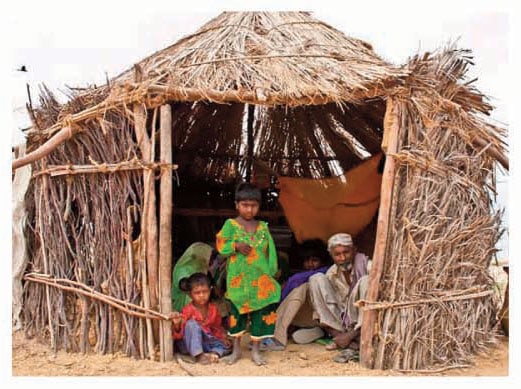Every year, November 20th is observed as Universal Children’s Day, a reminder of the fundamental rights every child is entitled to—education, health, clean water, and a secure future. However, for the children living in Karachi’s sprawling slums, this day holds little significance as their lives are marked by deprivation and hardship. Their struggles highlight the dire need for action to address their lack of access to basic amenities and to create a brighter future for them.Karachi, Pakistan’s largest city, is a symbol of ambition and opportunity. Yet, hidden behind its towering skyline and bustling streets are slums where countless children endure lives of extreme poverty.
These children, the future of our nation, are denied even the most basic rights. From clean drinking water to quality education and healthcare, their everyday existence is a fight for survival.The harsh conditions in these slums deprive children of a healthy childhood. The water they drink is often contaminated, exposing them to diseases like cholera, dysentery, and typhoid. Healthcare facilities are either nonexistent or too far away, forcing families to rely on unqualified practitioners or traditional remedies, often exacerbating health issues.
Education, a fundamental right, remains a distant dream for many. Schools in slum areas are either dysfunctional or severely under-resourced, making it nearly impossible for children to receive a proper education. Poverty drives many of them into child labor at a young age, forcing them to sacrifice their potential and dreams for meager earnings.Another critical issue is malnutrition.
These children lack access to nutritious food, which severely impacts their physical and mental growth. Families struggling to make ends meet prioritize quantity over quality when it comes to meals, leading to widespread malnourishment and related health complications.Girls in slum communities face even greater challenges. They are disproportionately affected by issues like early marriages, lack of hygiene facilities, and gender-based violence, making their lives even more precarious.Addressing these issues requires a comprehensive approach and urgent action. To ensure access to clean drinking water, the government and NGOs must collaborate to install filtration plants and establish sustainable water management systems in these areas. Education initiatives such as the establishment of free, community-based schools can help make quality education accessible.
These schools can also offer scholarships and vocational training programs to motivate children and empower them with skills for a better future.
Mobile health clinics can be introduced to provide basic healthcare services to slum communities. Additionally, awareness campaigns about hygiene, nutrition, and disease prevention can help improve overall health outcomes.To tackle malnutrition, food banks and nutritional programs should be launched to provide children with healthy and balanced meals. Schools in slum areas can introduce free meal programs to ensure that children are not only fed but also encouraged to attend school.
Non-governmental organizations (NGOs), civil society, and the corporate sector have a critical role to play in uplifting these children. By adopting slum areas, organizations can work to improve education, health, and nutrition standards. Behavior change campaigns can create awareness about children’s rights and the importance of education, health, and hygiene. Vocational training programs can equip older children and youth with skills that can help them escape the cycle of poverty.
Universal Children’s Day serves as a stark reminder that the children in Karachi’s slums are not just the responsibility of their families but of society as a whole. It is unacceptable that these children grow up in deprivation while other parts of the city thrive. Through coordinated efforts by the government, NGOs, and communities, we can provide these children with the opportunities they deserve. Ensuring access to clean water, nutritious food, education, and healthcare is not just a step toward building a better society—it is a moral imperative.








